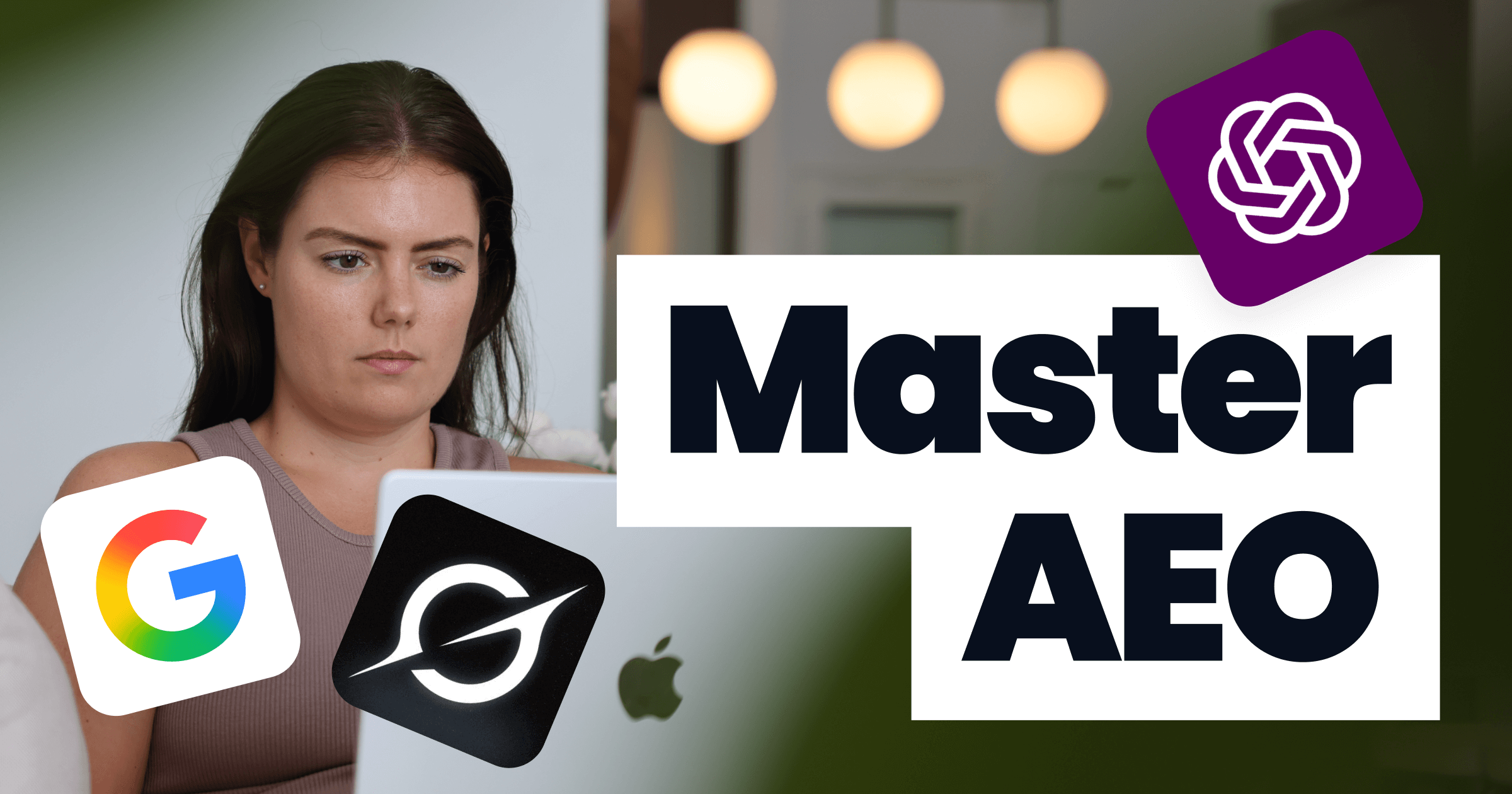
If you take a look back at some of the most successful marketing campaigns in history, I can assure you that they didn’t just happen by accident. There will have been an abundance of time, attention and planning put into it for it to be such a success. Of course timing is everything too, and some campaigns tend to be a bigger success than others based on hot topics at the time of launch.
No two marketing campaigns are the same but the processes that businesses follow in the planning and execution of a marketing campaign should be similar, with adjustments made in the necessary stages to tailor it to their industry.
What is a marketing campaign?
A marketing campaign is essentially an organised plan to promote a specific goal or project, raising brand awareness and encouraging brand engagement from a specific audience. A campaign can be carried out in many different ways, combining media formats such as email, print advertising, TV or radio adverts, PPC and social media efforts.
There are several different types of marketing campaigns:
- Product Marketing Campaign
- Brand Development Campaign
- Email Marketing Campaign
- Content Marketing Campaign
- User-Generated Content Campaign
- Public Relations / Awareness Campaign
- Direct Mail Campaign
- Affiliate Marketing Campaign
- Social Media Campaign
- Acquisition Marketing Campaign
- Paid Marketing / Advertising Campaign
Let’s take a look at how your business can turn your next marketing campaign into a success and the steps involved in the process:
1. Determine your campaign objectives
Setting a purpose and goal for your campaign before any further planning begins is a great way not to lose track of the campaign's aims. Take a step back and consider why you are creating a campaign and what you would like it to accomplish for your business. Here are some things to consider if you’re struggling to define a campaign objective:
- Do you have a new product or service to promote?
- Are you looking to increase brand awareness and engagement?
- Do you want to gather customer feedback?
- Are you trying to gain revenue and increase leads and sales?
- Is there an upcoming event that you want to promote?
Campaign objectives and key progress indicators (KPIs) are the components that define the end goal of your campaign. This is where you will outline your SMART objectives - Specific, Measurable, Achievable, Realistic, Time-Sensitive - and state which metrics will be used to track the progress of the campaign.
As this is one of the first steps in campaign creation you may not have all of the information required for filling out your SMART objectives, such as the specific KPIs you will use - this is fine to return to during the course of planning and make amendments to.

The metrics used to measure the success of your campaign will differ between every business and every campaign if the campaign is being leveraged on multiple platforms. KPIs can be a multitude of different metrics:
- Email open rates, interactions and responses
- Social media page likes, follows, interaction and engagement
- Blog shares, likes and engagement
- Sales, pre-orders, upsells, cancelled orders, abandoned baskets
- Press mentions and coverage
- Ticket sales, bookings, sign-ups
KPIs indicate how well my campaign is reaching and engaging my audience; my primary KPI tells me how close I am to reaching my SMART goal.
If you’re planning to have a campaign that involves multiple marketing channels, it’s a good idea to define how you’ll measure your campaign on each platform. There are various different tools you could use for this, for example:
- Google Analytics - for website-related insights
- A marketing automation tool like Semrush or HubSpot - for social media engagement, SEO position tracking and more
- An email marketing platform such as Mailchimp
While the above platforms, and many more give a multitude of insights, it will depend on what you want to track and what tools you may already have access to. Many overlap in their offering, for example HubSpot and Mailchimp for email marketing, so it's often just down to personal preference.
2. Consider your audience first and foremost
Before any content is created, or any ideas brainstormed, your business should define your target audience for the campaign. You might brush over this and just use your typical audience as your target market, but this needs to be thoroughly thought through, considering all the possibilities for your audience for one specific campaign - are you going to target all of your audience? Is the campaign to target a niche market within your target audience?
Target audience research is a key step that will build the foundation of your content for your marketing campaign. It will ensure everything you do is focused toward your ideal customer or client. Your marketing message will vary depending on where your campaign audience is in the buyer journey - the awareness, consideration, or decision stage. This is something to keep in mind in the planning stages of your campaign.

This stage of the campaign might feel like you are conducting research you’ve previously already done to identify your businesses overall target audience, but it’s a vital part of the campaign process to ensure that the campaign specifically targets an audience within your current target market.
To get to know the campaign audience in depth you should work on identifying your audience's interests and pain points, some of the questions you need to be able to answer by the end of your research are:
- What are my audience’s defining characteristics (age, marriage status, location, job)?
- What are my audience’s interests? What do they like to do in their free time? What media do they consume (TV, magazines, radio, podcasts)?
- What social media platforms do my audience have a presence on? For what purpose do they use Instagram, Facebook, and other networks? Does my audience often engage with social posts?
- What kind of content does my audience prefer? Are they responsive more to straightforward sales messages, or would they rather have humorous and witty content?
- Do they have any problems that my brand, product or service can help to resolve? Who in the audience is likely to have the problems my product or service can resolve?
3. Concept and Content
A marketing campaign should remain in line with your brand both visually and creatively, but the campaign should also be a stand-out against your usual marketing strategies. Great marketing campaigns require a brilliantly executed mission, vision, and visual identity.
Businesses using an in-house team or an agency for their marketing campaign will depend on each individual business and their budget. Either way, all members of your team need to be heavily involved in the concept and content stages as they are all experts of the business and know what the campaign will require in order to succeed.
At this point you will have clearly identified and defined your target audience for the campaign so you can begin brainstorming ideas for concepts and creating your content.
All members of the team should sit together for this session so ideas can be bounced around and worked on with each other. When you have a solid idea you can begin thinking of the ways the content will be leveraged e.g. written content (e.g., a blog or social media post, a report, a press release, etc.), an image (e.g., a meme, infographic, etc.) or a video.
As you are getting creative don’t forget to keep in mind your key target audience, you will be using the content to address and resolve the issue you have identified your consumer to have so this needs to be articulated through the content.
Keep in the loop with current trends and topics
Now is the right time to mention the need for extreme attention to the media and current affairs.
With the digital world working at one million miles an hour it can almost feel impossible to put together a marketing campaign that stays relevant, this is why it’s so important to focus your campaign topic around something that your audience will want to hear about. There are plenty of online tools to help with this but we use Buzzumo to uncover trending topics.
It's worth noting however, that no matter if it’s trending or not, if something is relevant and meaningful to your audience it's still worth pursuing. The smallest thing can go viral these days, remember planking in urban spaces? The dreaded ice bucket challenge? The dress that may or may not have been blue, or gold? The internet has recently taken Binley Mega Chippy and turned it into a viral TikTok destination, when really it’s just a bang average local chippy on the A428. But quite often these trends happen as a complete fluke - when brands try to force a trend to go viral it can be a complete disaster.


Your best bet to stay clear of any negative press is to avoid publishing anything that may come across as distasteful in the middle of a public scandal. Remember; timing is everything.
4. Marketing Channels
Choosing your marketing channel to launch your campaigns across is extremely important, and the choice is dependent on your audience, budget, and brand engagement levels.
See below for an outline of the PESO model for marketing:

5. Timeline of Campaign
Whilst it may seem like such a small part of your campaign, accurate timescale planning is so important to ensure a smooth sailing campaign. The timeline must consider, but is not limited to - idea creation, content creation, publication on different platforms, PR and media outreach, analysis and reporting.
A clear marketing timeline lets you and others involved in the campaign view the chronology of the marketing plan over time, from objectives and strategy to completed action items, providing realistic timeframes and allowing everyone to see where one another should be at with each section.
There are several different ways in which you can present the timeline of the campaign: Gantt chart, calendar, or within a written document - no matter the format the timeline will serve the purpose of organising the marketing plan and providing clear milestones for when particular assets should be completed.
Example GANTT chart:

There are several project management tools that can be used to easily create a timelines for your campaign, and any other tools you might need like report generating software, KPI trackers, analytics software. The following are some of our top recommended tools:
Monday.com
From a prototype built back in 2013 to an award-winning project management platform today, Monday is - in our humble opinion - the number one collaborative online project management tool used and loved by businesses worldwide.
Notion
Notion is another favourite of ours here at Beyond, it is an enhanced online workspace that allows you to write, plan, organise, and manage your work all in one place, helping hundreds of businesses to streamline workflow and increase productivity.
Asana
Asana is a web-based task management and collaboration software that helps businesses with project management tasks, allowing teams to collaborate, be organised, and execute work with a more defined plan.
The platform helps businesses to cut through email mess and busy chaotic schedules by compiling tasks together, coordinating them with other team members, allowing whole teams to access related files and documents and delegating project specific tasks to team members.
6. Promotion and Distribution
When you have all of your content ready to go, it’s time to promote and distribute it on all of the relevant channels. A lot of time and money that is invested in creating content for marketing campaigns tends to go to waste if the promotion and distribution of it is not well thought through.
The promotion and distribution of your marketing content is a fundamental part of your marketing campaign, it is absolutely essential for getting your marketing content seen by the right people.
Here are just a few of the ways in which you can get your content to your target market:
- Share content on all social media platforms
- Get in touch with bloggers and journalists to request a mention
- PPC ads on social platforms
- Re-share of content by users on social platforms and blogging sites
7. Tracking KPIs & Analysis of Campaign Data
A marketing campaign must be measured in some way for it to be considered a success. Having already established what your KPIs are early on, the tracking and analysis of them should be relatively easy at this stage.
Any experienced marketer will know that your KPIs must be tracked regularly throughout the duration of the campaign and thereafter, meaning the tracking process should never be a tedious or manual one as it must be able to be carried out quickly and at any time.
To track your marketing metrics if you don’t already have a software in place, you can find easy-to-use software tools that will take care of tracking and reporting on your KPIs. These softwares will be able to do the following:
- Campaign performance reports: See the data of all your sent campaigns.
- Site tracking: Track what people are doing on your website and follow up automatically.
- Integration with Google Analytics: Insert tracking links into your campaigns and measure the conversions on Google Analytics.
Was your campaign a success?
So now you’ve gathered all of your data from tracking KPIs, it’s time to analyse whether the campaign was ultimately a success.
The most obvious way to measure this is clearly to look at your ROI (Return on Investment) - spending £1000 on a campaign which brings in only £500 of revenue or sales isn’t a marketing campaign success by any measure. On the other hand, spending £1000 on a campaign and generating £5000 in sales you will have hit a 400% ROI, which is certainly a success!
Take a look at this lead generation campaign we ran with a whopping 730% ROAS:

Other measures of success aside from campaign interactions - such as clicks and sales - is consumer response. Listening to what consumers are saying about the brand is a great indication of success or failure - is there much conversation around the campaign? If so, is the feedback positive or negative?
Looking at all of the data from KPIs, lead and sales information, and consumer interactions will provide you with a clear picture of your marketing campaigns success. With the help of this guide and our agency’s expert advice you should be fully equipped to pull off an effective and successful campaign.
If you feel your business needs to outsource a lot of the work, or you just won’t have time to plan an entire campaign, then get in touch with us and we can take care of your marketing needs from start to finish!

Just a heads up, some of the links in this article may be affiliate links, meaning we may make a small commission on any sign-ups or purchases for the tools we recommend.






































